Australia’s lack of fuel our national security ‘Achilles’ heel’
Australia has a huge national security “Achilles’ heel” that could see our economy tank within 30 days. Now a town 8000km away is being asked to solve the problem.
The town of Winnie in Texas, close to the border with Louisiana, is a very long way from Australia – more than 8000 kilometres as the crow flies.
It’s an unremarkable place. Two freeways bisect its main street – itself a four-lane highway – that is lined with a branch of Texas First Bank, iconic diner Dairy Queen and a scattering of car dealerships, liquor stores and churches.
Yet, quite suddenly, Winnie has become central to Australia’s security and resilience in the face of a future crisis.
It’s not the town itself. But a few miles to the south east, in an area known as Big Hill, where the vast Texan flatlands become pockmarked with clearings.
These are entrances to a huge underground network of storage tanks that can hold up to millions of barrels of oil to be used in times of dire need.
It’s one of several sites that make up the US’s Strategic Petroleum Reserve (SPR), designed so the country doesn’t run out of fuel should the unexpected happen. And in the past few months the Australian Government has scooped up almost $100 million of that fuel to “boost the nation’s long-term fuel security”.
But it has some scratching their heads about how Australia’s domestic fuel security is safeguarded by having that fuel stored half a world away from Australia.
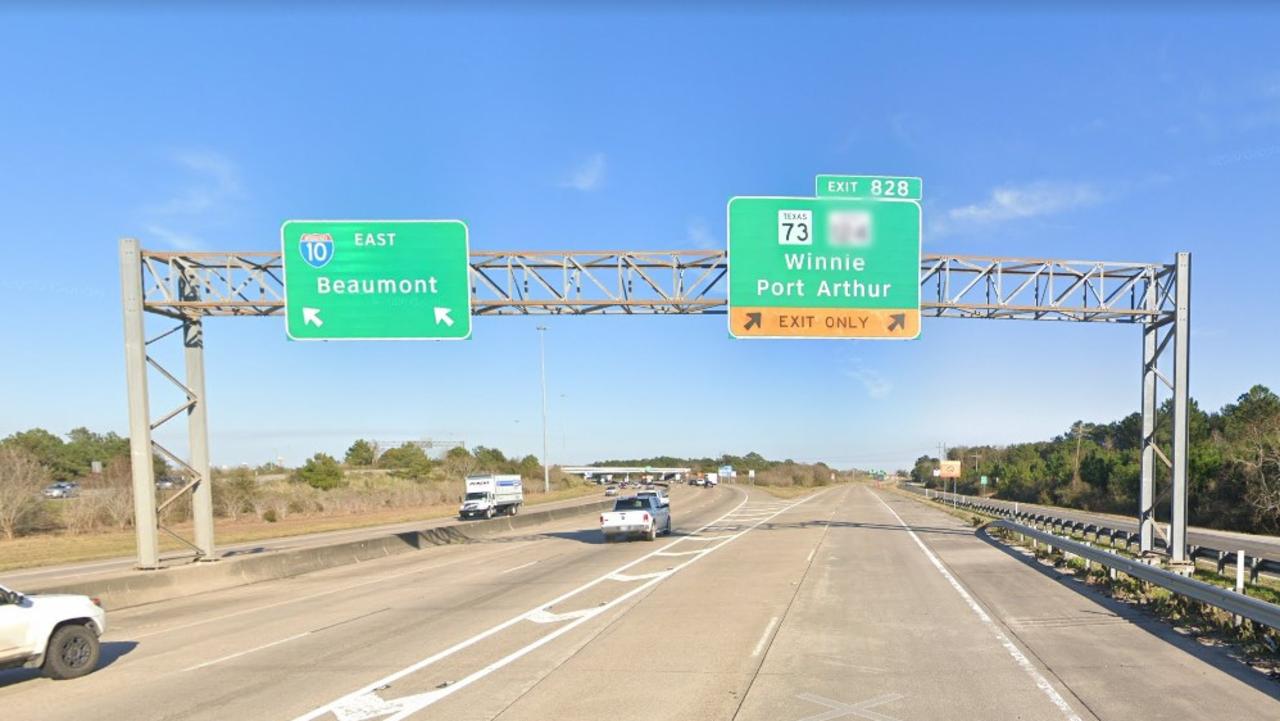
“It‘s an issue of national security – having something in the US doesn’t provide for our national interest to be protected in the way that it should,” Labor leader Anthony Albanese said in April.
“It’s a solution but not the solution we need,” a security analyst has told news.com.au, adding the lack of fuel security was Australia’s “Achilles’ heel”.
AUSTRALIA HAS ONLY 30 DAYS OF PETROL
Signatories to the International Energy Agency, of which Australia is one, should have a minimum of 90 days oil on tap, “in the event of a severe oil supply disruption”.
According to the monthly Australia Petroleum Statistics report Australia had 79 days’ worth of fuel in April.
However, that figure includes not only fuel stored in Australia but also oil on ships heading our way and oil sitting at overseas terminals destined for Australia.
Take those away and Australia only has 61 days’ worth of fuel. Indeed, we haven’t had 90 days’ worth of fuel since 2012.
In terms of petrol and jet fuel, it’s worse. We have only 30 days’ worth in the national tank and a mere 20 days of diesel.
“The average person thinks of fuel security as fuel for the car. But it impacts across the economy,” Australian Strategic Policy Institute (ASPI) security analyst John Coyne told news.com.au.
“It’s high-grade jet fuel to deep fat fryer oil. It’s diesel, and petroleum products to make bitumen and plastics.”
Throughout the pandemic, Australians were assured that we produced three times the food we could consume. That’s true, but food security is dependent on oil security.
“If you don’t have fuel, you can’t go out and muster cattle; you can’t work the combine harvester, you can’t run the generators that irrigate the fields or fuel the trucks to move those commodities.”


AUSTRALIA’S ACHILLES’ HEEL
Australia now imports 90 per cent of its liquid fuel. Big fuel firms have decreased our domestic refinery and storage capacity as it costs less to ship oil in. In 10 years, Australia has gone from seven to just four refineries. Sydney now has no refineries at all.
“Your petrol in Sydney may have originated in Saudi Arabia, been refined in Singapore and shipped from there. It’s an incredibly long supply chain which works because it’s cheaper and less complex than storing large quantities of crude oil,” said Mr Coyne.
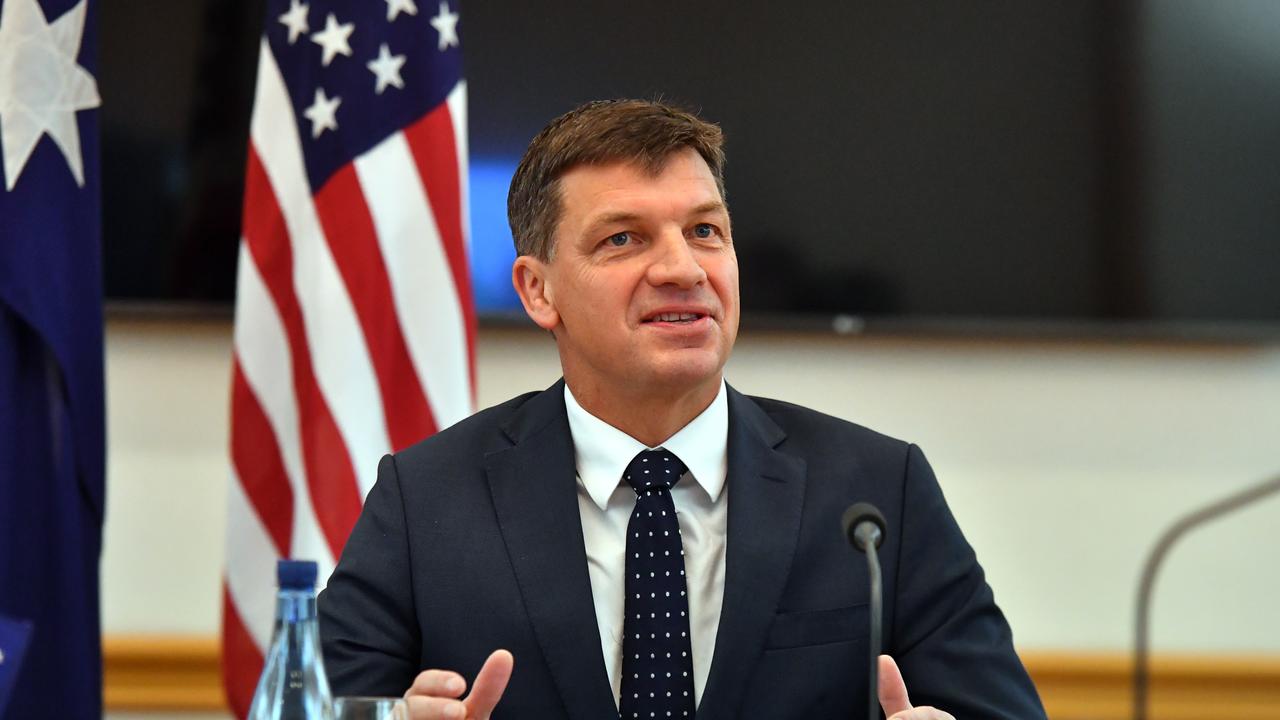
ECONOMY COMES TO A HALT
But the pandemic has shown how supply chains can be shaken. And this is just a virus, not a deliberate effort to disrupt supply.
This week, the Prime Minister announced a multi billion dollar boost to the Defence budget, part of which will be to ensure vital shipping routes to Australia remain open.
“If there was a war in the Middle East then fuel would be all over the ocean and Australia would be competing for it and that would have a risk to the availability of supply,” said Mr Coyne.
“The US keeps a strategic reserve so they can hold out for 90 days. We don’t so we’re highly vulnerable to sudden changes in demand and supply.
“Oil supply is a critical Achilles heel for Australia because you only have to constrain the supply of liquid fuel to Australia for 30 or 40 days and the whole economy comes to a halt.”
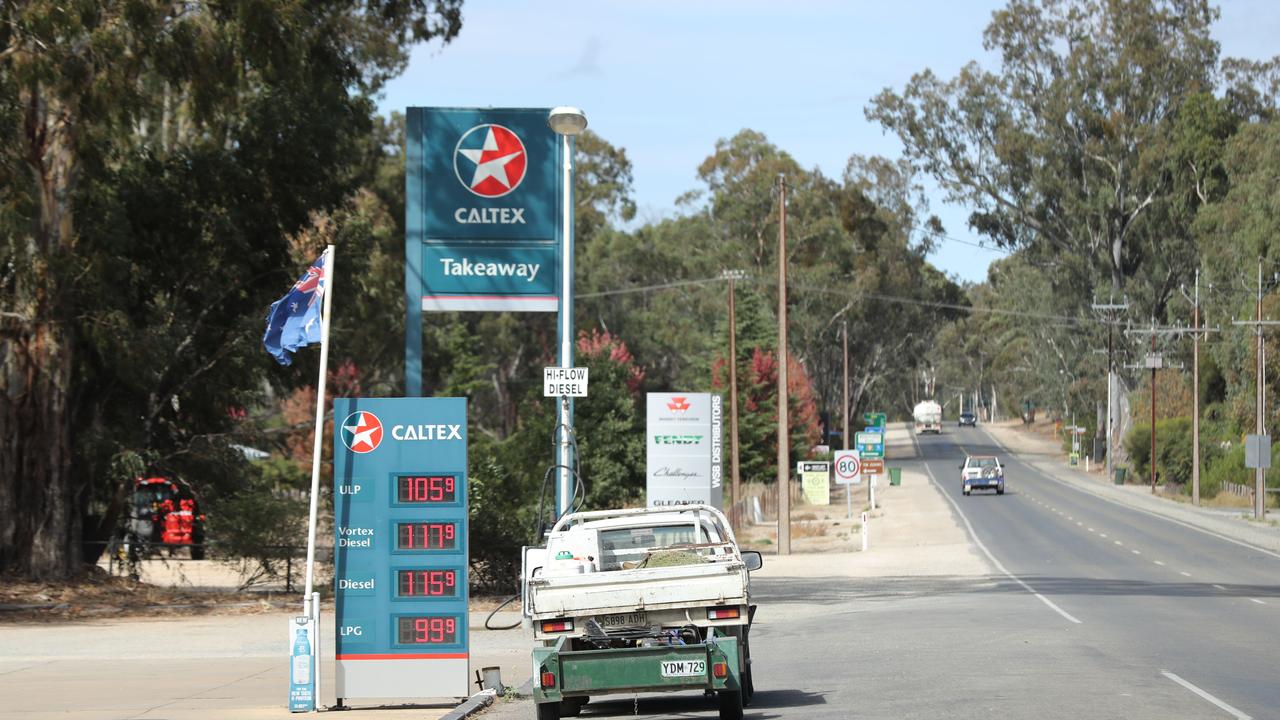
Step forward Winnie and the other locations of the US’s SPR which include Bryan Mound, a storage area close to Houston, and another in Louisiana.
Speaking in April, Energy Minister Angus Taylor said the SPR was one of the world’s cheapest and best places to store fuel long term.
“The Government is taking action to improve Australia’s fuel security and enhance our ability to withstand global shocks, such as the COVID-19 pandemic, when they reach our shores,” he said.
But, asked Labor’s Mr Albanese, how will the fuel – that would take a month to travel from Texas to the Tasman at the best of times – even get here in a crisis?
“The US isn't New Zealand. It’s not next door. If there’s the sort of international conflict or issues that provide disruption to sea lanes, that may well occur at some stage in the future, then that is why nation states need to have this fuel capacity.”
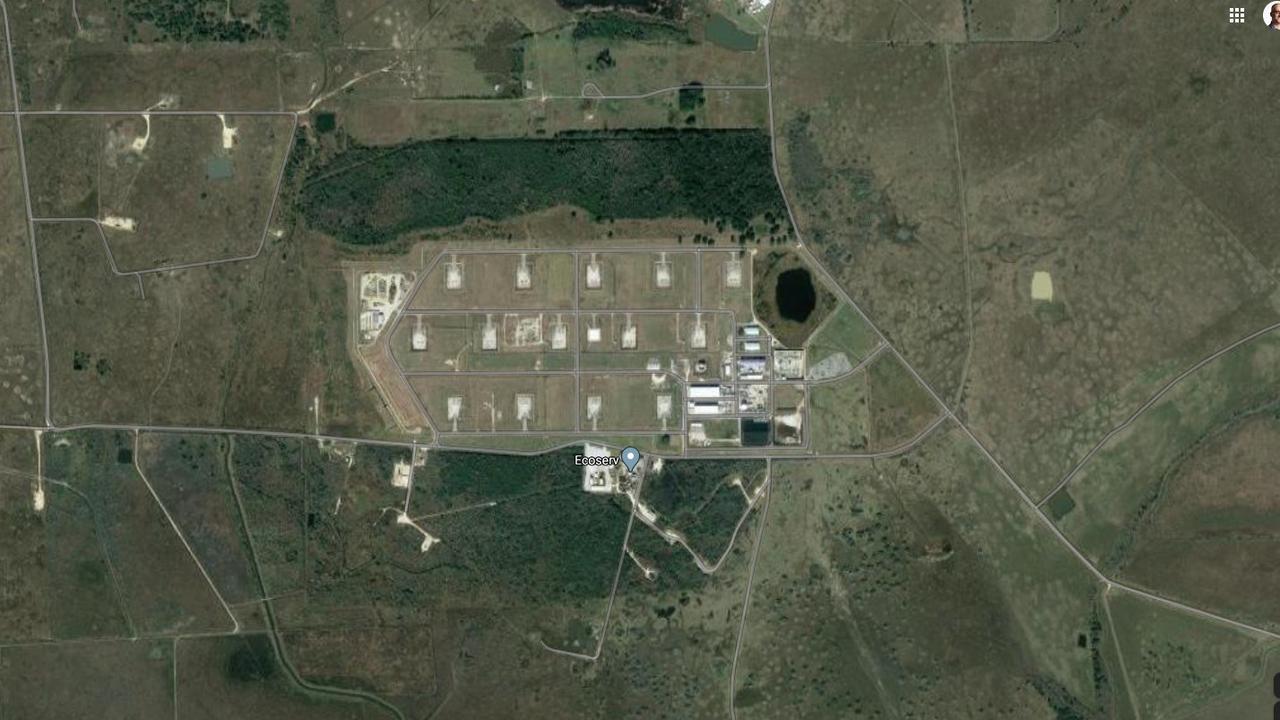
CALL TO INCREASE DOMESTIC FUEL STORAGE
A crisis of such magnitude that all shipping would seize up is unlikely. Nevertheless, Mr Taylor said the US-based stockpile was only a “down payment” on “a stronger and more secure fuel supply” for Australia.
Earlier this month, he called for proposals from the fuel industry to boost domestic reserves from 7 to 15 million barrels.
ASPI’s Mr Coyne was sceptical about whether the industry would fully deliver on Mr Taylor’s wish.
“It was the industry that said it wasn’t viable to have storage in Australia, so it’s asking the people responsible for the problem to find the solution,” he said.
In the end the costs will be likely paid for by the taxpayer, either at the pump or because the government will have to directly intervene and fund some of the storage costs.
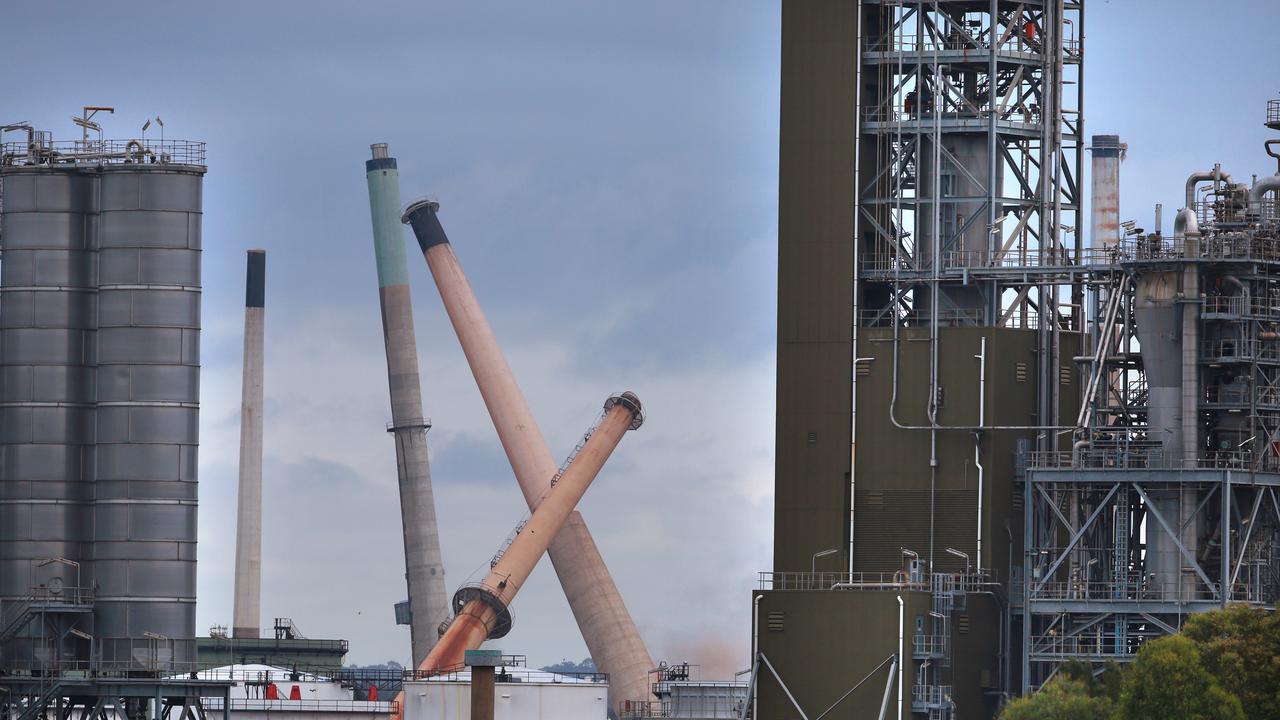
But even then, said Mr Coyne, Australia would be vulnerable.
“It only buys us time, maybe an extra 30 days. It doesn’t fix the issue of national resilience. We need a review of the whole oil supply chain,” he said.
Some experts have called for more support for home grown oil production or innovative industries that will keep the wheels moving, such as electric vehicles.
However, there was another, perhaps unexpected, benefit to Australia’s offshore oil reserve.
The nation bought the fuel at rock bottom prices just as COVID-19 hit. Oil companies were desperate for anyone to buy their wares.
If we don’t ever need to use the fuel in the reserve, we can sell down the line for a hefty profit, Mr Coyne said.
“It’s like an insurance policy that will have economic dividends regardless.”
The residents of Winnie, pulling in for a bite at Dairy Queen, may have no idea a nation 8000km away is using its ground as a national security bulwark – or as an offshore bank account.




